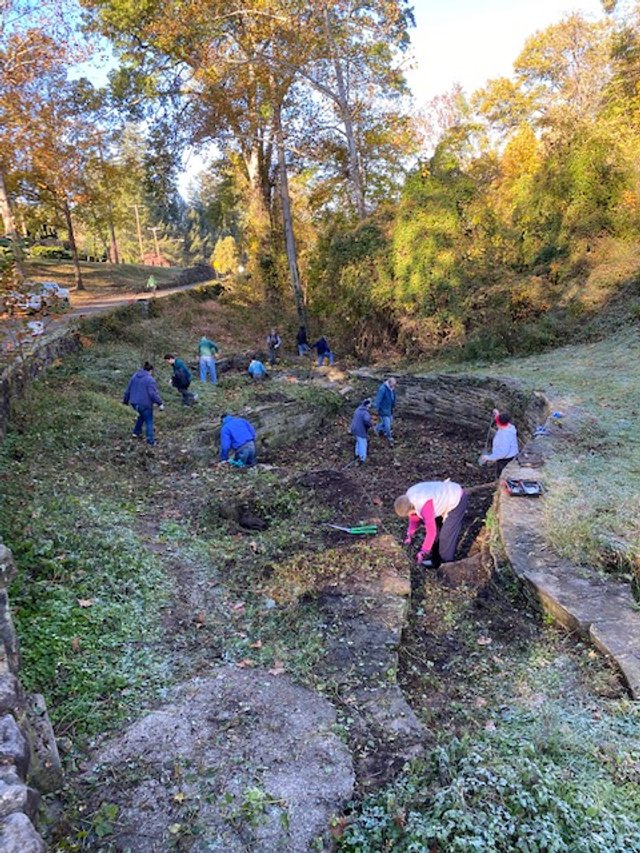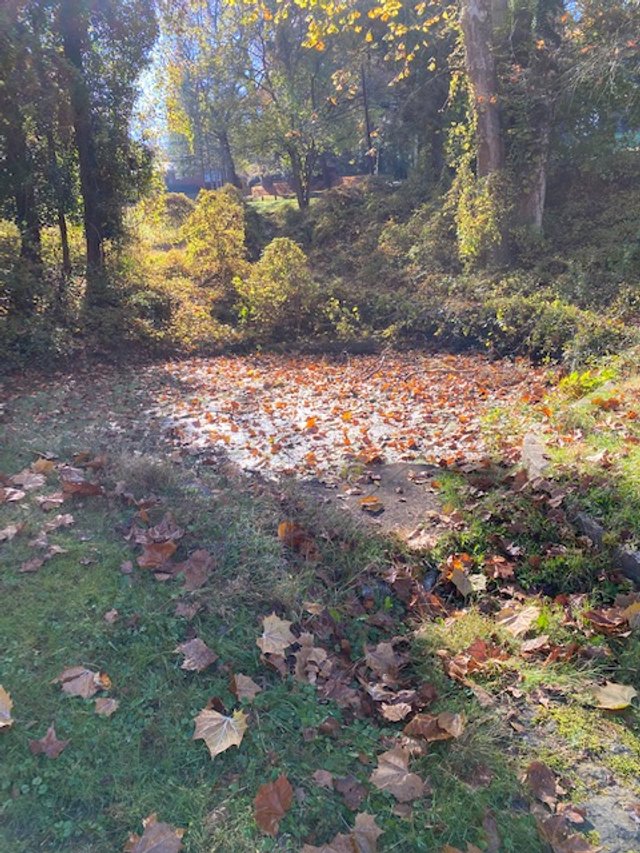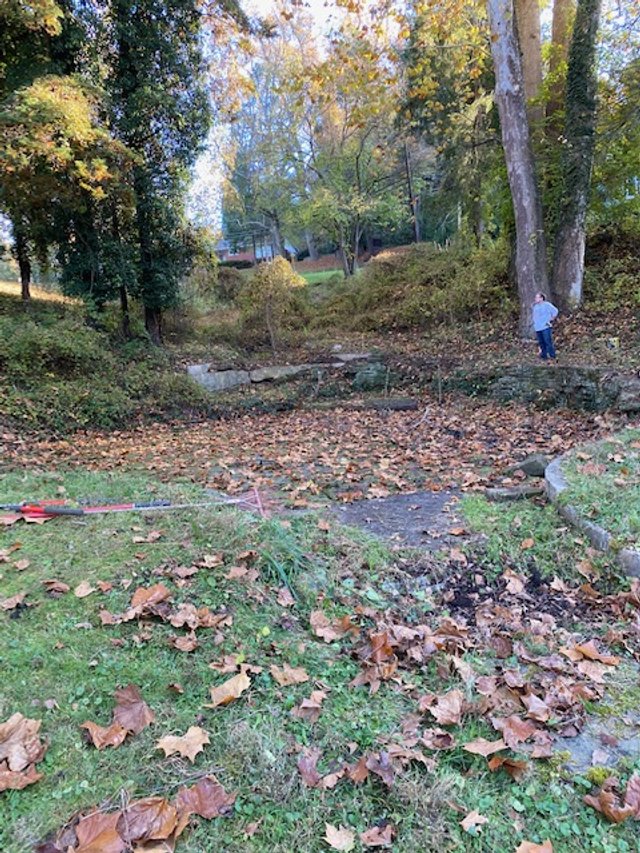Restoring Ritter Park’s Lily Ponds
Alliance members cleared invasive vines and sediment from Ritter Park’s abandoned and forlorn lily ponds on Saturday and Sunday, November 5th and 6th, 2021. The ponds date from the 1920’s. The Alliance has a copy of the original plans for their construction, which are dated June 21, 1927. They were in the possession of Alliance Charter Member, Sterling Hall, who has graciously loaned them to The Alliance’s Parks Committee.
Below are several photographs of the work parties in action at the work sessions.








Many longtime Huntington residents fondly recall the lily ponds in Ritter Park. They were beautiful, peaceful and most welcoming to those wishing to relax with friends, meditate or picnic nearby. They were another elegant asset of the park and, at one time, were quite well-maintained. Sadly, the ponds and their beautiful stonework have fallen into a serious state of disrepair from neglect. Their formerly attractive stonework is crumbling and the sediment of decaying plant matter fills them. The ponds had become so overgrown with invasive plants that they could no longer be readily seen.
An important item on The Southside Alliance’s “To-Do” list for Ritter Park is the restoration of these ponds. A return to their former ongoing, correct maintenance is a priority as well. Accordingly, thanks to the leadership of the Alliance’s Parks Committee Chair, Chuck Chambers, and under the supervision of GHPRD staff members, an attack was launched against the invasive vines at the lily ponds. Eighteen Alliance members volunteered for the work groups along with members of the South Side Neighborhood Organization and the Cabell Master Gardener Association, Inc. On the first day everyone worked on the two ponds north of the lane that leads from the Rose Garden, past the amphitheater to the knob and amphitheater parking lot. On Sunday work continued there and extended to the large pond on the bank just across the lane on the bank to the north.
Parks Director Kathy McKenna was on site. Nick Pennington of the GHPRD’s maintenance staff drove three, very-full, dump truck loads of plant trash to the GHPRD’s composting area.
The Park Commission has not had an effective program to contain vines, such as grape vines, ivy, kudzu, and poison ivy, for decades. As a result, in addition to the takeover of the ponds by the vines, many trees have been devoured by them. Many others are now near death. These invasive vines also enjoy creeping all over the park’s very nice WPA stonework. They not only make it impossible to appreciate the park’s stonework in many places, they can damage the stonework as well.
Now that a significant amount of debris and vegetation has been removed from the lily ponds, an assessment can be made in order to determine the steps needed for their restoration.
